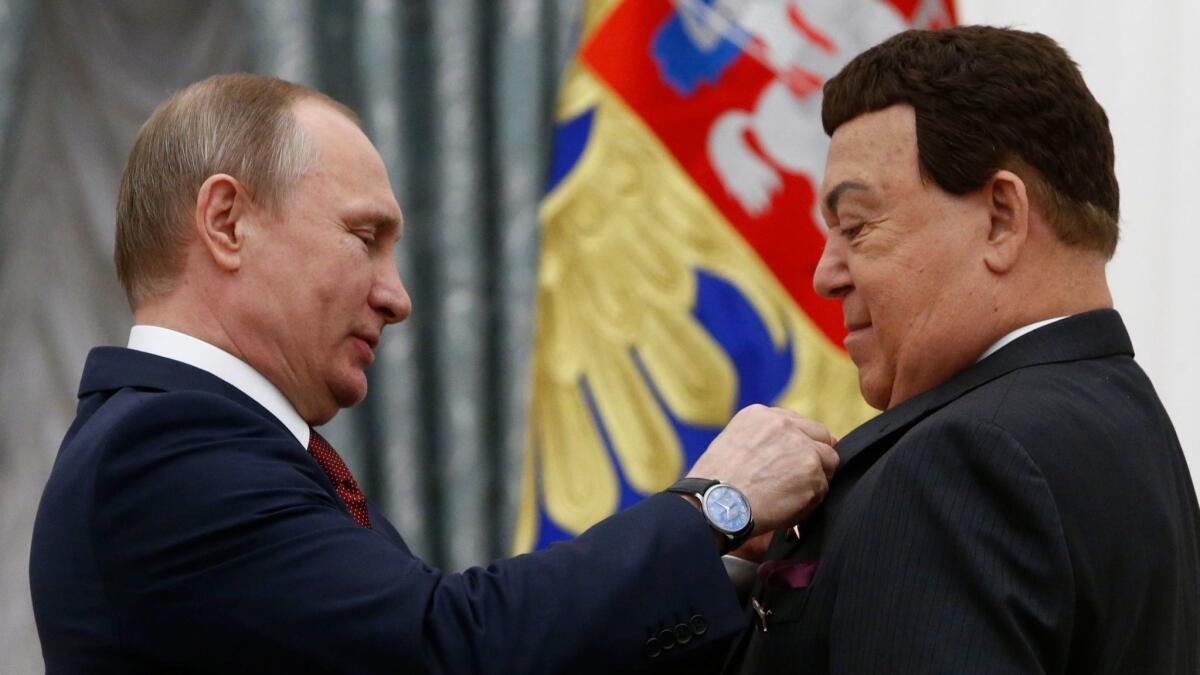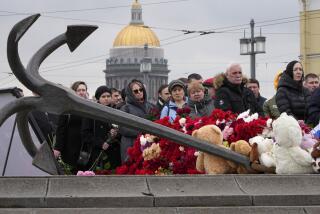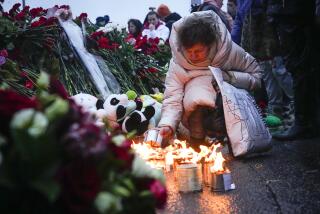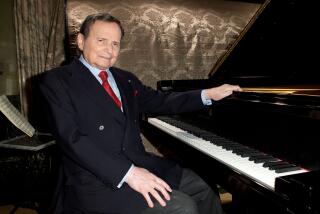Iosif Kobzon, dubbed the ‘Soviet Sinatra,’ dies at 80

Iosif Kobzon, an iconic Russian crooner and political figure dubbed “the Soviet Sinatra” for his decades-long career, has died. He was 80 years old.
One of the most revered Russian singers of the 20th century, Kobzon is remembered not only for his concerts but also for efforts to negotiate the release of hostages and prisoners of war.
The Russian State Duma, the lower house of the Russian parliament, said in a statement that Kobzon died Thursday.
Russian news agencies quoted his assistant as saying the singer’s death resulted from a protracted illness, a typical Russian euphemism for cancer. Kobzon was diagnosed with cancer a decade ago.
President Vladimir Putin on Thursday sent his condolences to Kobzon’s family, calling him “truly a people’s artist” and a “man of great strength, courage and dignity.” Defense Minister Sergei Shoigu said Kobzon was “a wise mentor who was always there with help and advice.”
With his trademark toupee, boxer’s build and striking baritone that could easily withstand even seven-hour singing marathons, Kobzon was a perennial fixture on Soviet and Russian radio and television starting in the early 1960s.
His devotion to the Communist Party and a repertoire of patriotic songs about the heroic achievements of the Soviet people helped him become one of the most successful performers of the Soviet era. He sold tens of millions of records in the Soviet Union and the Socialist Bloc countries.
But to generations of Soviet dissidents and rock music fans, Kobzon symbolized the omnipresent Communist propaganda that contradicted the idea of artistic expression free from censorship and government control.
Kobzon was born into a poor Jewish family in the eastern Ukrainian town of Chasov Yar in 1937 — in the darkest hour of purges instigated by Soviet leader Josef Stalin.
As part of a children’s choir, Kobzon performed in front of Stalin and later graduated from the prestigious Gnesin music school in Moscow. He rose to fame in the early 1960s with “Cuba My Love,” a song praising the anti-U.S. struggle of Cuban Communists.
By 1973, Kobzon had become a member of the Communist Party and earned a degree at the University of Marxism-Leninism.
He recorded albums with songs about World War II written by leading Soviet songwriters, sang opera arias as well as Russian and Ashkenazi Jewish folk songs and rediscovered dozens of popular songs dating back to the 1920s.
His hours-long shows with brass and string orchestras drew crowds throughout the Soviet Union, and his patriotic songs boosted his popularity among the country’s military and law enforcement agencies.
In 1989, Kobzon was elected to the first Soviet parliament. In the same year, as an influential member of the Soviet Jewish community, he participated in the talks that restored Soviet-Israeli diplomatic ties, which had been cut after the 1967 Mideast War.
He tried to organize a Russian tour for his longtime idol Frank Sinatra. But to Sinatra’s demand to be sent a handwritten invitation from Soviet leader Mikhail Gorbachev and to hold his show on Moscow’s Red Square, Kobzon replied with a four-letter swear word.
In the years of perestroika and after the Soviet collapse, fame and connections helped Kobzon launch a career in business and politics. But the U.S. and several Western European countries denied Kobzon entry visas because of his alleged links to the Russian mafia. The FBI alleged in 1995 that Kobzon ran a criminal organization involved in racketeering, international arms trading and drug trafficking.
In 2003, a Swiss court froze Kobzon’s assets in a Swiss bank and confiscated some $750,000 of his money, alleging it was laundered by a criminal group. Kobzon fiercely denied the claims and said they were made up by his political opponents.
From 1997 until his death, he was a lawmaker in the State Duma, joining the Kremlin-organized United Russia party.
Kobzon advocated for the introduction of strict limits on foreign music in radio and television broadcasts.
Using his political and business connections, he facilitated the release of dozens of captured Russian soldiers and civilians during the separatist wars in Chechnya.
He also helped hold talks with Chechen militants who seized a Moscow theater with some 900 hostages in October 2002. Kobzon arrived at the scene and went into the theater. Even though he failed to persuade the militants to let the hostages go, he did manage to secure the release of one woman and three children.
In 2007, Kobzon celebrated his 70th birthday with a seven-hour-long concert at the Kremlin’s concert hall and a tour of former Soviet republics.
In recent years, he traveled to his native separatist-controlled eastern Ukraine to show his support for the Kremlin-backed rebels, defying protests of the Ukrainian government. In one of his last shows, he performed in the rebel capital of Donetsk in October 2014, celebrating the inauguration of the rebel leader.
Kobzon is survived by his wife, son, daughter and 10 grandchildren.
More to Read
Start your day right
Sign up for Essential California for the L.A. Times biggest news, features and recommendations in your inbox six days a week.
You may occasionally receive promotional content from the Los Angeles Times.






